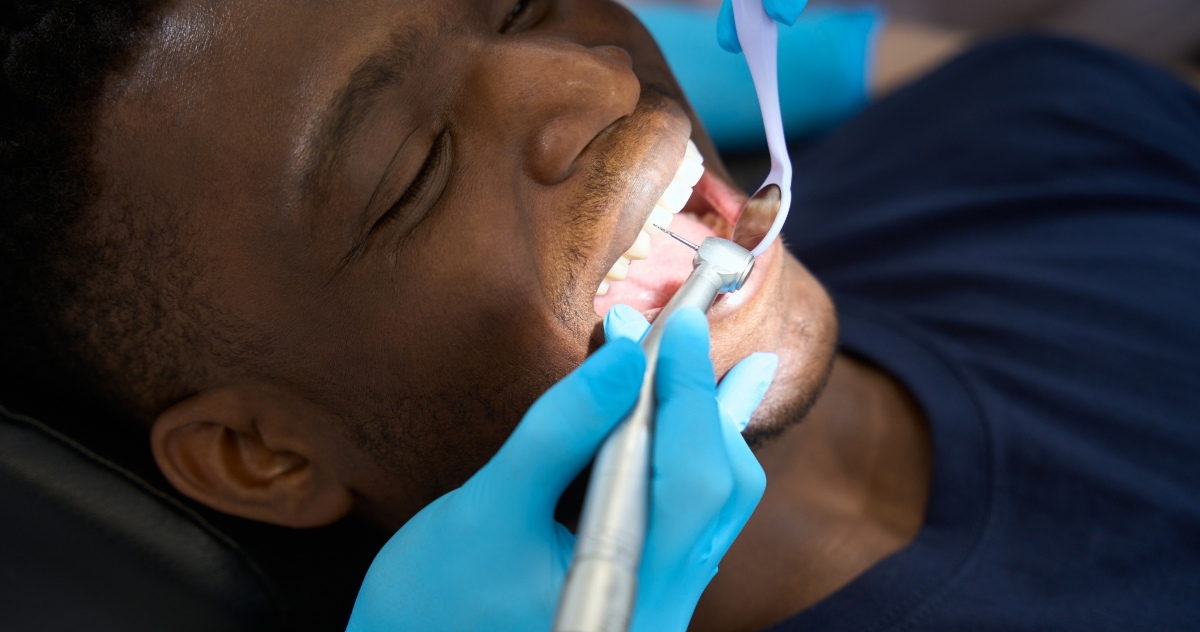UK (Parliament Politic Magazine) – The incidence of mouth cancer and related fatalities has surged to unprecedented levels, with a charitable organization sounding the alarm about the dire consequences of NHS dental care shortages. New statistics released by the Oral Health Foundation as part of November’s Mouth Cancer Action Month reveal that there are now 9,860 cases of mouth cancer annually in the UK, marking a substantial 47 percent increase over the past decade.
Tragically, this disease claims the lives of over 3,000 individuals each year, primarily due to late diagnosis, which the Oral Health Foundation attributes to the “devastating consequence” of the unavailability of essential dental services.
Mouth Cancer Risk Factors and Awareness
In a recent development, the British Dental Association (BDA) issued a cautionary statement earlier this year, revealing that the number of NHS dentists in England had fallen to the lowest levels since the 2014/15 period.
Furthermore, an investigative report conducted by the BBC in the previous year uncovered a startling fact: nine out of every ten NHS dental practices throughout the UK were no longer accommodating new adult patients. Dr. Nigel Carter, the Chief Executive of the Oral Health Foundation, remarked that
“The lack of accessible NHS dental care is not just a matter of toothaches and cavities; it’s a silent catalyst for tragedy. “The alarming shortage of dental access is leading to late-stage diagnoses of mouth cancer, a devastating consequence of systemic neglect.
“Lives are hanging in the balance, and it is time for urgent action. We cannot ignore the fact that delayed diagnosis, caused by the unavailability of essential dental services, is robbing people of their precious time and a fighting chance against this ruthless disease.”
In a recent development, the British Dental Association (BDA) issued a warning earlier this year, highlighting that the number of NHS dentists in England had reached its lowest point since 2014/15. Moreover, a BBC investigation conducted last year revealed a concerning statistic: nine out of every ten NHS dental practices across the UK were declining new adult patients.
What Are the Warning Signs?
The Oral Health Foundation emphasizes the importance of raising awareness about mouth cancer. According to the charity’s research, a mere 12% of the population can recognize the early warning signs of this disease. According to Neil Sikka, a dentist at Bupa Dental Care, individuals should be vigilant for the following primary warning signs:
- Mouth ulcers that do not heal within three weeks.
- Unexplained swelling or lumps in the mouth or around the jaw.
- Red or white patches in the mouth, which may become tender.
- Teeth becoming loose without an apparent cause.
- Difficulty swallowing.
- The onset of a hoarse voice or difficulty speaking.
Mouth cancer exhibits a slightly higher incidence in men, accounting for 67% of cases, and the risk escalates with age, as 78% of cases occur in individuals over 55. Nevertheless, it’s important to recognize that anyone can potentially be affected by this disease, and the causes are not always evident. However, certain known risk factors should be avoided to reduce the chances of developing mouth cancer.
Neil Sikka underscores that the primary risk factors include smoking or chewing tobacco and excessive alcohol consumption. Furthermore, specific types of human papillomavirus (HPV) infections of the mouth have also been associated with elevated rates of mouth cancer.
Read More: Key Hurdles Confronting the Healthcare and Care Systems in England
Why Are Dental Check-ups So Important?
The Oral Health Foundation emphasizes the critical importance of early detection when it comes to mouth cancer. When mouth cancer is identified in its early stages, the survival rate is as high as 90%, in stark contrast to a much lower 50% survival rate for those who are diagnosed late. It’s essential to note that during dental check-ups, dentists not only assess your teeth and gums but also diligently inspect for any potential signs of cancer, underscoring the value of regular dental visits in maintaining overall health.
The three primary treatments for mouth cancer include surgical removal of the cancerous tissue, along with radiotherapy and chemotherapy. However, the specific treatment plan for each individual will be contingent upon factors such as the precise size and location of the disease, whether it has metastasized, and the patient’s overall health. Tailored treatment plans take into account these unique aspects to provide the most effective and appropriate care


